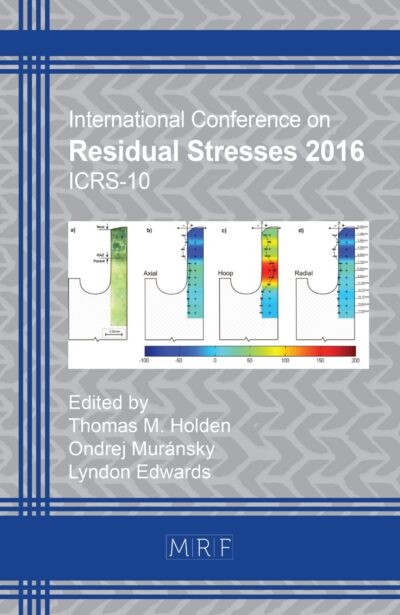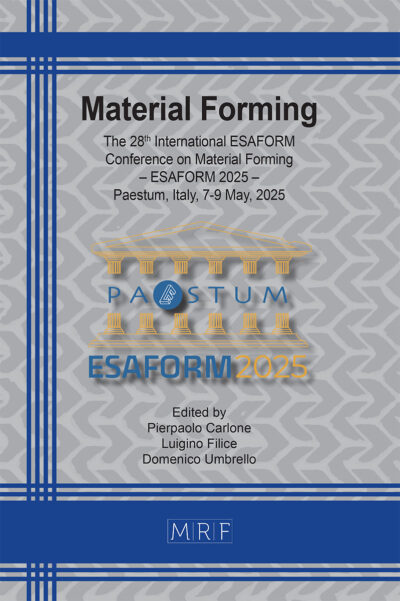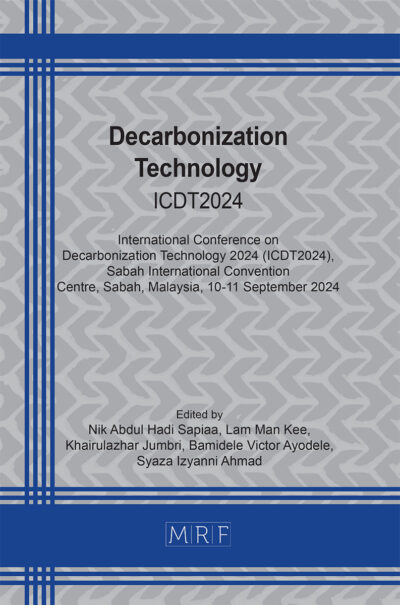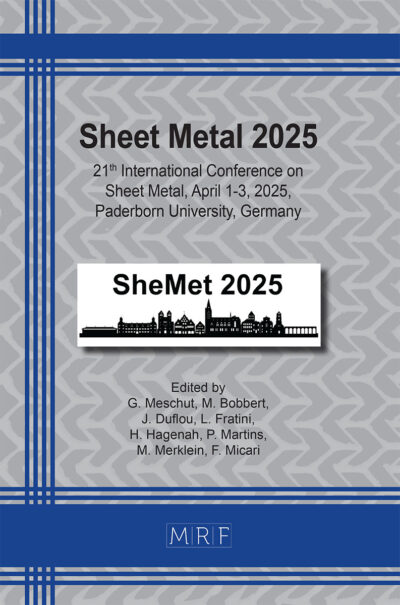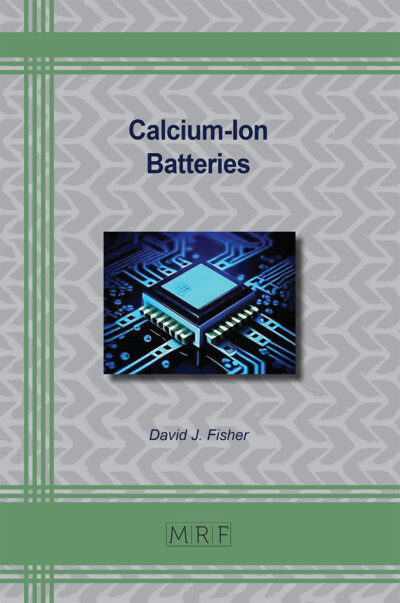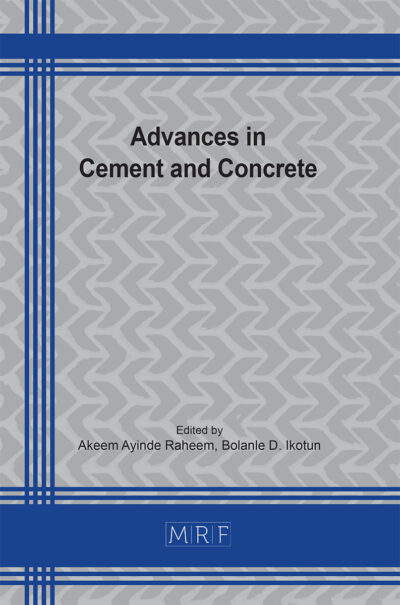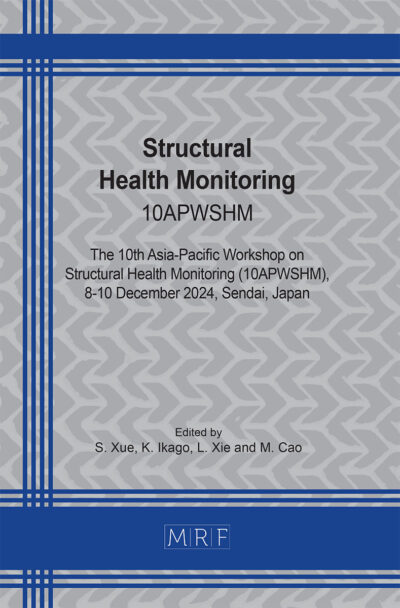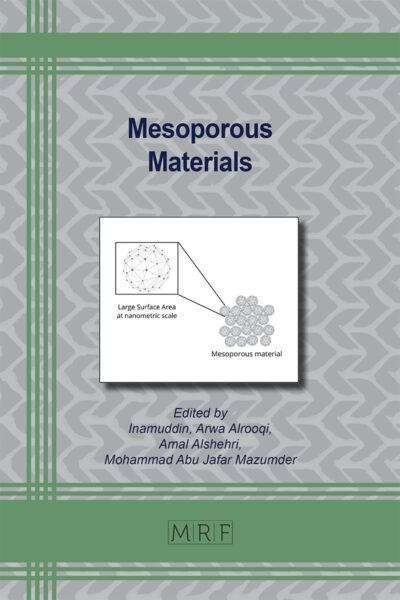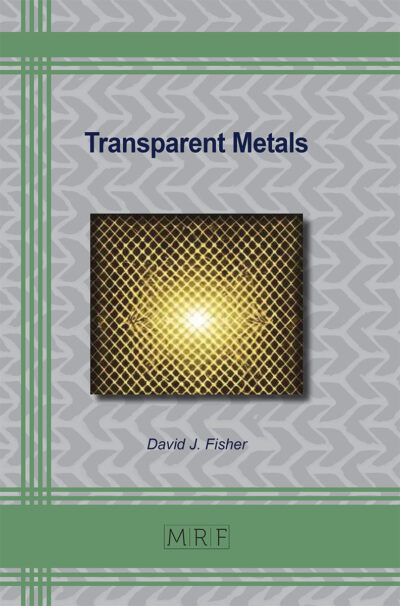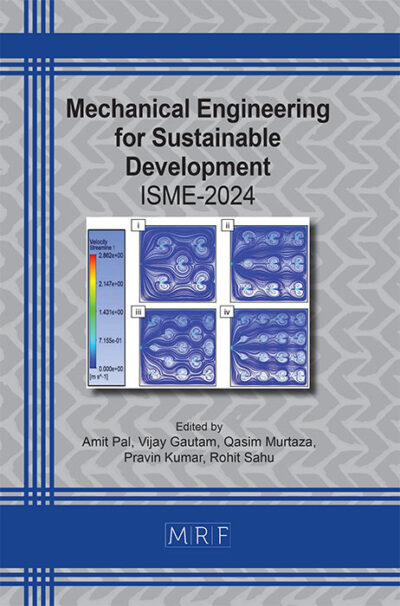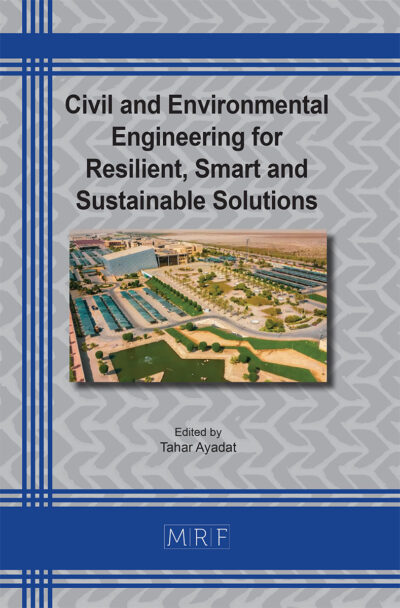Evaluation of Palm Fiber Components as Alternative Biomass Wastes for Medium Density Fiberboard Manufacturing
Abdel-Baset A. Adam, Altaf H. Basta, Houssni El-Saied
download PDFAbstract. This work deals with assessing the date palm component wastes as alternative lignocellulosic material for production of Medium density fiberboards (MDF), in order to establish economic and balance between production/consumer ratio at different provinces rather than Upper Egypt. Palm leaves and palm frond was used as MDF precursors. Different urea formaldehyde (UF) levels (10-14%/fiber) and pressing pressure (25-35 bar) were applied in this evaluation. The acceptable interaction of palm fibers component with UF was optimized by characterizing its DSC & TGA, in comparison with commercial used sugarcane bagasse fibers. The promising MDF Panel is obtained from palm frond fibers and its mechanical and water resistance properties fulfill the ANSI standard for high grade MDF wood products, especially on applying UF level 12-14%, and pressing pressure, 35 bar. It is interesting to note that, applying higher pressing pressure together with 12% UF level provided palm frond-based MDF with static bending properties, higher than commercial Bagasse-based MDF. The insignificant effect of pressing pressure was noticed on water swelling property and free-HCHO of MDF panels. Where, both type of fibers have the same water swelling property (reached ~ 10%), and free-HCHO (~ 27 mg/100g board).
Keywords
medium density fiber-board, date palm components, defibration process, thermal behaviour, UF-fibers interaction, strength properties, water resistance property
Published online 4/20/2019, 20 pages
Copyright © 2019 by the author(s)
Published under license by Materials Research Forum LLC., Millersville PA, USA
Citation: Abdel-Baset A. Adam, Altaf H. Basta, Houssni El-Saied, Evaluation of Palm Fiber Components as Alternative Biomass Wastes for Medium Density Fiberboard Manufacturing, Materials Research Proceedings, Vol. 11, pp 113-132, 2019
DOI: https://doi.org/10.21741/9781644900178-7
The article was published as article 7 of the book By-Products of Palm Trees and Their Applications
![]() Content from this work may be used under the terms of the Creative Commons Attribution 3.0 licence. Any further distribution of this work must maintain attribution to the author(s) and the title of the work, journal citation and DOI.
Content from this work may be used under the terms of the Creative Commons Attribution 3.0 licence. Any further distribution of this work must maintain attribution to the author(s) and the title of the work, journal citation and DOI.
References
[1] A. Kargarfard, A.J. Latibari, The performance of corn and cotton stalks for medium density fiberboard production, Bioresources 6 (2011) 147-57.
[2] A.A. Adam, A.H. Basta, H. El-Saied, Performance of bagasse-based medium density fiberboard produced from different steam digestion retention times. Forest Product Journal 62-5 (2012) 400–405. https://doi.org/10.13073/0015-7473-62.5.400
[3] M. Akgul, A. Toslughu, Utilizing peanut husk in the manufacture of medium density fiberboards, Bioresource Technology, 99 (2008) 5590-5594. https://doi.org/10.1016/j.biortech.2007.10.041
[4] M. Akhtar, W.R. Kenealy, E.G. Horn, R.E. Swaney, J.E. Winandy, Method of making medium density fiberboard, US Patent No: US 2008/0264588 A1, 2008.
[5] ANSI 208.2., American National Standardization Institute. Medium Density Fiberboard, 1994.
[6] ASTM D1037, Standard test for evaluation the properties of wood-based and particle panel materials, American society and materials, Philadeplia, PA.: ASTM D1037-94, 1994.
[7] ASTM E1690, Determination of ethanol extractives in bagasse, in Annual book of ASTM Standards, Philadelphia, PA: American Society for Testing and Materials 11.05, E1690, 2003.
[8] N. Ayrilmis, J.E. Winandy, Effect of post heat treatment on surface characteristics and adhesive bonding performance of MDF, Materials and Manufacturing Processes 24 (2009) 594-599. https://doi.org/10.1080/10426910902748032
[9] A.H. Basta, H. El-Saied, New approach for utilization of cellulose derivatives metal complexes in preparation of durable and permanent colored papers, Carbohydrate. Polymers 74-2 (2008) 301-308. https://doi.org/10.1016/j.carbpol.2008.02.021
[10] A.H. Basta, V. Fierro, H. El-Saied, A. Celzard, Effect of Deashing Rice Straws on their derived Activated Carbons produced by Phosphoric Acid Activation, Biomass and Bioenergy 35 (2011) 1954-1959. https://doi.org/10.1016/j.biombioe.2011.01.043
[11] A.H. Basta, H. El-Saied, J.E. Winandy, R. Sabo, Preformed amide-containing biopolymer for improving the environmental performance of synthesized urea–formaldehyde in Agro-fibre Composites, Journal of Polymers and the Environment 19-2 (2011) 405–412. https://doi.org/10.1007/s10924-011-0286-4
[12] A.H. Basta, H. El-Saied, O. El-Hadi, C. El-Dewiny, Evaluation of rice straw-based hydrogels for purification of wastewater. Polymer Plastic Technology and Engineering 52-11 (2013) 1074-1080. https://doi.org/10.1080/03602559.2013.806548
[13] A.H. Basta, H. El-Saied, V.F. Lofty, Performance assessment of deashed and dewaxed rice straw on improving the quality of RS-based composites, RSC Advances 4-42 (2014) 21794-21801. https://doi.org/10.1039/c4ra00858h
[14] A.H. Basta, H. El-Saied, V.F. Lotfy, Performance of rice straw-based composites using environmentally friendly polyalcoholic polymers-based adhesive system, Pigment and Resin Technology 42-1 (2013) 24-33. https://doi.org/10.1108/03699421311288733
[15] A.H. Basta, H. El-Saied, E.M. Deffallah, Optimising the process for production of high performance bagasse-based composites from rice bran-UF adhesive system, Pigment and Resin Technology 43-4 (2014) 212-218. https://doi.org/10.1108/prt-08-2013-0077
[16] A.H. Basta, H. El-Saied, E.M. Deffallah, Effects of denaturisation of rice bran and route of synthesis of RB-modified UF adhesive system on eco-performance of agro-based composites, Pigment and Resin Technology 54-3 (2016) 172-183. https://doi.org/10.1108/prt-04-2015-0037
[17] E. Ciannamea, P.M. Stefani, R.A. Ruseckaite, Medium Density fiberboard from rice husks and soybean protein concentrate-based adhesive, Bioresource Technology 101 (2010) 818-25. https://doi.org/10.1016/j.biortech.2009.08.084
[18] A.W. Coats, J.P. Redfern, Kinetic parameters from thermogravimetric data, Nature 201 (1964) 68–72. https://doi.org/10.1038/201068a0
[19] Y. Copur, C. Gular, C. Tascioglu, A. Tozluoglu, Incorporation of hazelnut shell and husk in MDF production, Bioresource Technology 99 (2008) 7402-7406. https://doi.org/10.1016/j.biortech.2008.01.021
[20] D.E. El Nashar, S.L. Abd‐El‐Messieh, A.H. Basta, Newsprint paper waste as a fiber reinforcement in rubber composites, Journal of Applied Polymer, Science 91-5 (2004) 3410-3420. https://doi.org/10.1002/app.13726
[21] H. El-Saied, M.H. Fadl, A.H. Basta, Properties of bagasse hardboard made by in-situ formation of phenol-lignin formaldehyde resin, Polymers & polymer composites 4-7 (1996) 519-522.
[22] H. El-Saied, A.H. Basta, M.E. Hassanen, H. Korte, A. Helal, Behaviour of Rice-Byproducts and Optimizing the Conditions for Production of High Performance Natural Fiber Polymer Composites, Journal of Polymers and the Environment 20-3 (2012) 838-847. https://doi.org/10.1007/s10924-012-0439-0
[23] EN 120, The European Standard for “determination of free formaldehyde in wood-based panels Perforator method, 1992.
[24] H.R. Faraji, Investigation on properties of medium density fiberboard (MDF) produced from bagasse: M.Sc. Thesis, Tarbiat Modares University, Faculty of Natural Resources and Marine Science, 1998.
[25] N.A. Fathy, V.F. Lotfy, A.H. Basta, Comparative study on the performance of carbon nanotubes prepared from agro-and xerogels as carbon supports. Journal of Analytical and Applied Pyrolysis 128 (2017) 114-120. https://doi.org/10.1016/j.jaap.2017.10.019
[26] S. Halvarsson, H. Edlund, M. Norgren, Properties of MDF based on wheat straw and melamine modified urea- formaldehyde (UMF) resin, Industrial Crops and Products 28 (2008) 37-46. https://doi.org/10.1016/j.indcrop.2008.01.005
[27] Y. Hossein, Canola straw as a bio-waste resource for medium density fiberboard manufacture, Waste Management 29-10 (2009) 2644-2648. https://doi.org/10.1016/j.wasman.2009.06.018
[28] A. Istek, D. Aydemir, H. Eroglu, Surface properties of MDF coated with calcite/clay and effects of fire retardants on surface properties, Maderas Ciencia y tecnología 14-2 (2012) 135-144. https://doi.org/10.4067/s0718-221×2012000200001
[29] G. Jayme, P. Sarten, Über die quantitative bestimmung von pentosen mittels bromwasserstoff-sauer, Naturewise 28-52 (1940) 822–823. https://doi.org/10.1007/bf01489045
[30] S. Lee, T.F. Shupe, C.Y. Hse, Mechanical and physical properties of agro-based fiberboard. Holz-als-Roh-und-Werkstoff 64 (2006) 74-79. https://doi.org/10.1007/s00107-005-0062-z
[31] X. Li, Z. Cai, J.E. Winandy, A.H. Basta, Effect of Oxalic Acid and Steam Pretreatment on the Primary Properties of UF-bonded Rice Straw Particleboards, Industrial Crops and Products 33 (2011) 665- 669. https://doi.org/10.1016/j.indcrop.2011.01.004
[32] H. Mahmoudi, G. Hosseininia, H. Azadi, M. Fatemi, Enhancing date palm processing marketing and pest control through organic culture, J Organic Systems 3-2 (2008) 29-39.
[33] E. Roffael, C. Behn, D. Krug, A. Weber, C. Hartwig-Gerth, G. Gräfe, UF- und PMDI-Doppelbeleimung bei Faserplatten,. Holz-Zentralblatt 137 (2011) 1216–1217.
[34] V. Sivakumar, M. Asaithambi, P. Sivakumar, Physico-chemical and adsorption studies of activated carbon from agricultural wastes, Advances in Applied Science Research 3-1 (2012) 219-226.
[35] TAPPI Test Method T429, Determination of cellulose, In TAPPI Test Methods. Atlanta, GA: Technical Association of the Pulp and Paper Industry, 2012.
[36] TAPPI .Test Method T222, Determination of acid insoluble lignin, In TAPPI Test Methods. Technical Association of the Pulp and Paper Industry, 1998.
[37] V.K. Thakur, A.S. Singha, M.K. Thakur, Graft copolymerization of methyl acrylate onto cellulosic biofibers: Synthesis, characterization and applications. Journal of Polymers and the Environmen, 20-1 (2012) 164-174. https://doi.org/10.1007/s10924-011-0372-7
[38] V.K. Thakur, A.S. Singha, M.K. Thakur, Surface modification of natural polymers to impart low water absorbency. International Journal of Polymer Analysis and Characterization, 17 (2012) 133-143. https://doi.org/10.1080/1023666x.2012.640455
[39] V.K. Thakur, A.S. Singha, M.K. Thakur, In-air Graft copolymerization of Ethylacrylate onto Natural Cellulosic Polymers, International Journal of Polymer Analysis and Characterization, 17 (2012) 48-60. https://doi.org/10.1080/1023666x.2012.638470
[40] V.K. Thakur, M.K. Thakur, R.k. Gupta, Graft copolymers of natural cellulose for green composites, Carbohydrate Polymers, 104 (2014) 87-93. https://doi.org/10.1016/j.carbpol.2014.01.016
[41] H.R. Taghiyari, P. Nouri, Effect of nano-wollastonite on physical and mechanical properties of medium density fiberboard. Maderas. Ciencia y tecnología 17-4 (2015) 833-842. https://doi.org/10.4067/s0718-221×2015005000072
[42] H.R. Taghiyari, P. Nouri, Effect of wollastonite on physical and mechanical properties of medium density fiberboard (MDF) made from, Wood fibers and camel-thorn. Maderas. Ciencia y tecnología 18-1 (2016) 157-166. https://doi.org/10.4067/s0718-221×2016005000016
[43] L.F. Wise, M. Murphy, A.A. D’assiece, Chlorite holocellulose, its fractionation and bearing on summative wood analysis and on stiudes on the hemicellulosi. Paper Trade Journal 122-2 (1946) 35-43.
[44] X.P. Ye, J. Julson, M. Kuo, A. Womac, D. Myers, Properties of medium density fiberboard made from renewable biomass, Bioresource Technology 98 (2007) 1077-1084. https://doi.org/10.1016/j.biortech.2006.04.022
[45] H. Younesi-Kordkheili, A. Pizzi, Properties of plywood panels bonded with ionic liquid-modified lignin–phenol–formaldehyde resin, The Journal of Adhesion, https://dx.doi.org/10.1080/00218464.2016.1263945, 2017


